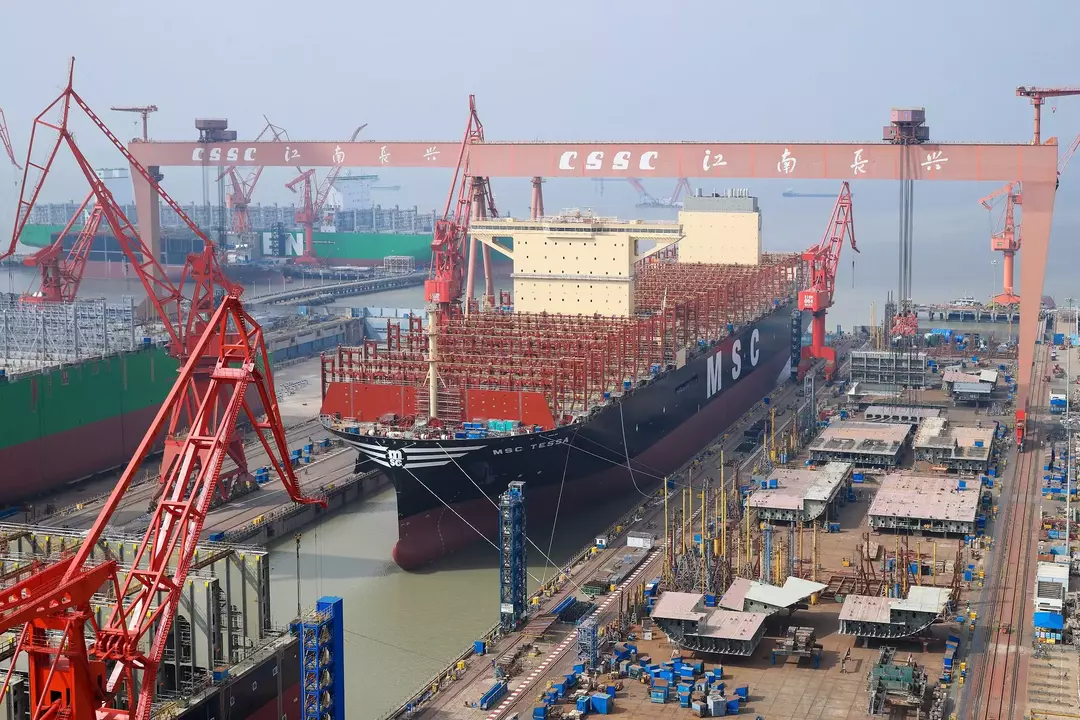The maritime industry, a critical pillar of global trade and national security, faces significant challenges due to China’s aggressive strategies. The U.S. Trade Representative (USTR) has recently issued a landmark finding that sheds light on these issues, highlighting the urgent need for action.
Introduction
The USTR’s investigation, initiated in response to petitions from labor unions, reveals alarming trends in China’s dominance over the maritime, logistics, and shipbuilding sectors. This dominance, achieved through unfair practices, poses substantial threats to the United States’ economic and national security. As the U.S. grapples with its diminishing role in these sectors, the need for retaliatory measures and strategic planning becomes evident.
China’s Dominance in the Maritime Sector
The USTR report underscores a stark reversal in American shipbuilding capabilities:
- In 1975, the U.S. was the global leader, building over 70 ships annually.
- Today, the U.S. ranks 19th, constructing fewer than five ships per year, compared to China’s 1,700.
Katherine Tai, the U.S. Trade Representative, emphasized that Beijing’s targeted dominance undermines fair competition and poses significant economic security risks.
Unfair Practices and U.S. Dependence
China’s strategy includes state subsidies, preferential sourcing policies, and unfair labor practices, which have decimated U.S. maritime capabilities and resulted in substantial job losses. Moreover, the U.S. has become increasingly dependent on Chinese maritime infrastructure, with American international trade relying heavily on Chinese-made vessels and logistics.
Impact on U.S. Jobs and Industrial Capacity
The petition filed by labor unions, including the United Steelworkers and the International Brotherhood of Boilermakers, highlights the devastating impact of China’s trade practices on American jobs and industrial capacity. Union leaders have called for swift action to restore U.S. shipbuilding to a position of strength, emphasizing the urgent need to address these issues.
National Security Implications
The crisis extends beyond commercial concerns, affecting national security. Experts like Arnav Rao from the Open Markets Institute attribute the U.S.’s laissez-faire approach to maritime policy since the 1980s as a key factor in allowing China to monopolize these sectors. Rao suggests a holistic approach to rebuilding American maritime dominance, including economic regulation and public investment.
Potential Remedial Actions
The USTR’s findings pave the way for remedial actions under Section 301 of the Trade Act. Proposed solutions include:
- Implementing port fees for Chinese vessels.
- Developing a comprehensive approach to rebuilding American maritime dominance through economic regulation.
- Increasing public support for U.S. shipping and shipbuilding capacity.
- Investing in merchant mariner training.
President-elect Donald Trump has signaled his administration’s commitment to confronting Beijing’s trade practices, hinting at an aggressive approach to level the playing field.
Conclusion
The USTR’s report highlights the urgent need for the United States to address China’s dominance in the maritime sector. With significant implications for economic and national security, the incoming administration faces mounting pressure to implement strong measures to revitalize U.S. shipbuilding capacity and protect national interests.
For more detailed information, refer to the USTR’s full report.


Leave a Reply